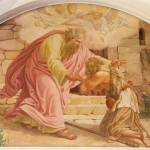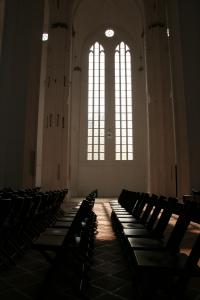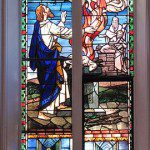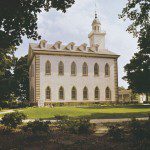Something strange is happening at America’s colleges and universities. A movement is arising, undirected and driven largely by students, to scrub campuses clean of words, ideas, and subjects that might cause discomfort or give offense.

So begins an article in The Atlantic entitled: The Coddling of the American Mind.
For the last few years news organizations have been covering “safe places” on college campuses, places that seemingly protect students from ideas that may cause them discomfort or dis-ease.
The story took on life earlier in 2016 when some students charged that Vote Trump 2016 chalked on various places around the campus filled them with fear.
Later this year, the University of Chicago took a stand against safe zones by letting their incoming students know that the school would be a place of freely expressed ideas.
Our commitment to academic freedom means that we do not support so-called ‘trigger warnings,’ we do not cancel invited speakers because their topics might prove controversial, and we do not condone the creation of intellectual ‘safe spaces’ where individuals can retreat from ideas and perspectives at odds with their own.
While many find “trigger free safe zones” outrageous (See above, The Coddling of the American Mind) and an affront to free speech, far too many churches have been creating, consciously or unconsciously, trigger free safe zones for years. Far too many congregations and far too many Christians close their minds to other viable ways of interpreting Scripture, robbing them of the opportunity to let God’s spirit stretch and grow them.
The Bible itself, for example, grows in its understanding of how God works in the world. The early Hebrews, for instance, didn’t believe in a resurrection from the dead. That belief came later. (During Jesus’ day the Pharisees believed in resurrection and the Sadducees did not.)
I’m not talking here about unorthodox teachings. I’m not suggesting that we water down the essence of the Gospel, the Lordship of Jesus, the One God creator of all.
But:
What if God’s grace is wider, deeper, and more inclusive than we can imagine? What does it mean that one day every knee will bow and every tongue will confess that Jesus Christ is Lord to the glory of God the Father?
What if God is not a punitive judge but a restorative judge?
What if the creation stories in Genesis chapters 1 and 2 (and yes, they are two different stories) aren’t true stories but truth stories? Big truth Myths that put into poetic language what human language can’t describe? Stories that speak not to the “how” of creation but the “who” and the “why” of creation? Stories that don’t pit the Bible against science?
What if the homosexuality condemned in the Bible is not the same as the homosexuality as experienced by people today?
What if Jesus, not condemnation, will have the final word? What if the cross is stronger than unbelief?
These questions may or may not lead to new insights. But shouldn’t we who believe in Jesus—who believe that God created us with these amazing minds to think and analyze and wonder and imagine and ask questions—shouldn’t we take the lead in creating Question Zones to help us wrestle with the heights and depths of God’s unfathomable grace in Christ? What are we afraid of? God’s truth?











